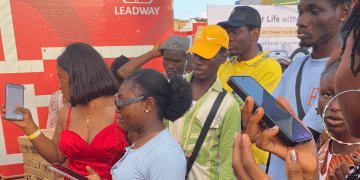The Kano State Centre for Disease Control (KNCDC) has warned residents of the state be wary over the risk of Lassa Fever and Cerebrospinal Meningitis (CSM) outbreak in the state.
The latest warning came from the agency’s Director General, Dr. Muhammad Adamu Abbas, in a public advisory made available to newsmen in the state.
The Daily Crucible reports that Nigeria Centre for Disease Control (NCDC), had in October 2022 disclosed that no fewer than 56 deaths were recorded in 32 States and the Federal Capital Territory (FCT).
The deaths resulted from 961 cases of suspected Cerebrospinal Meningitis (CSM).
Dr. Ifedayo Adetifa, the Director-General of NCDC, gave the number at the time in a statement, where he explained that the organisation had continued to work with affected States to improve surveillance given the underreporting of cases with the support of partners.
“Cerebrospinal Meningitis (CSM) is an epidemic-prone disease, with cases reported all year round in Nigeria. The highest burden occurs in the ‘Meningitis Belt’ of Africa south of the Sahara Desert. In Nigeria, the belt includes all 19 northern States, the Federal Capital Territory (FCT), and some Southern States, ” he said at the time.
However, Dr. Abbas, pointed out that Lassa Fever surfaces across the country around the month of October and November with the peaks between January and May each yesr.
He noted that the risk of Lassa Fever transmission in Kano remains significant given the ecological and environmental conditions of the state.
He, however, called on all members of the public to remain on alert and adhere strictly to preventive measures, while noting that the government has already activated the Public Health Emergency Operations Centre (PHEOC) for Lassa Fever preparedness and response in the state.
According to him, “Following a national advisory from the Nigeria Centre for Disease Control and Prevention (NCDC), the Kano State Centre for Disease Control and Prevention (KNCDC) wishes to inform the general public that the 2025/2026 Lassa Fever season has commenced across Nigeria.
“The disease typically emerges around October/November and peaks between January and May every year. Given Kano’s ecological and environmental conditions, the risk of Lassa Fever transmission remains significant.
“The Kano State Centre for Disease Control (KNCDC), therefore, calls on all citizens to remain on alert and adhere strictly to preventive measures. Report any persistent fever to the nearest health facility. Do not treat suspected Lassa Fever at home. Health facilities should report all suspected cases through the designated surveillance platforms.
“The Kano State Government, through the KNCDC, has activated the Public Health Emergency Operations Centre (PHEOC) for Lassa Fever preparedness and response. Ongoing actions include: Pre-positioning PPEs, antivirals, and medical supplies in strategic health facilities. Training health workers on case management and infection prevention. Community sensitization and rodent control campaigns in high-risk LGAs. Strengthening coordination with environmental and agricultural sectors under the One Health approach.
“Lassa Fever is preventable and treatable when detected early. The Kano State Government urges all citizens to keep their environments clean, store food safely, report fevers promptly, and avoid contact with rodents,” he said.
In the same vein, the agency’s Director General, Dr. Abbas, gave insight into why the state remains vulnerable to Cerebrospinal Meningitis (CSM) outbreaks.
Abbas said Kano situates within the African meningitis belt, adding that
this requires preventive measures being taken at all time.
“Following a national advisory from the Nigeria Centre for Disease Control and Prevention (NCDC), the Kano State Centre for Disease Control and Prevention (KNCDC) alerts the Kano State public that the 2025/2026 Cerebrospinal Meningitis (CSM) season has commenced. CSM is a bacterial infection of the brain and spinal cord lining that can cause death or lifelong disability within hours if not promptly treated. The disease spreads more easily during the dry, dusty season (October to May) due to low humidity, poor ventilation, and overcrowding. Kano State lies within the African meningitis belt and remains at risk of seasonal outbreaks if preventive measures are not strictly followed.
“The Kano State Government, through KNCDC, has put the Incident Management System on watch. Current interventions include a focus on High-Risk Settings, by special preventive attention is directed toward boarding schools, Almajiri institutions, prisons, correctional centres, and IDP camps, where overcrowding increases transmission risk. Facility managers must ensure good ventilation, regular sanitation, and prompt reporting of suspected cases.
“Meningitis can kill within hours, but it is preventable and treatable when detected early. The Kano State Government calls on all residents to remain vigilant, ensure vaccination, maintain good hygiene, and report suspected cases promptly. Meningitis vaccination is safe and effective—ensure that children and vulnerable persons are vaccinated,” the agency’s Director General, Dr. Abbas, however, noted.










































